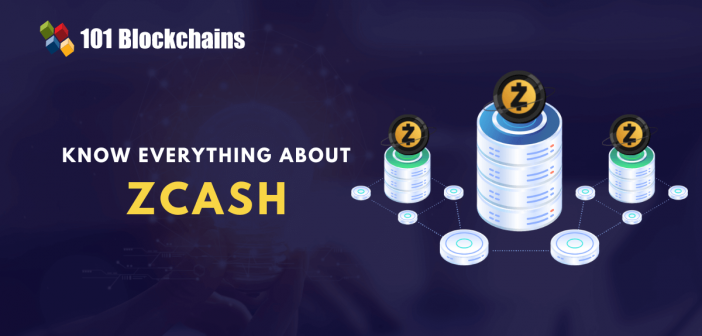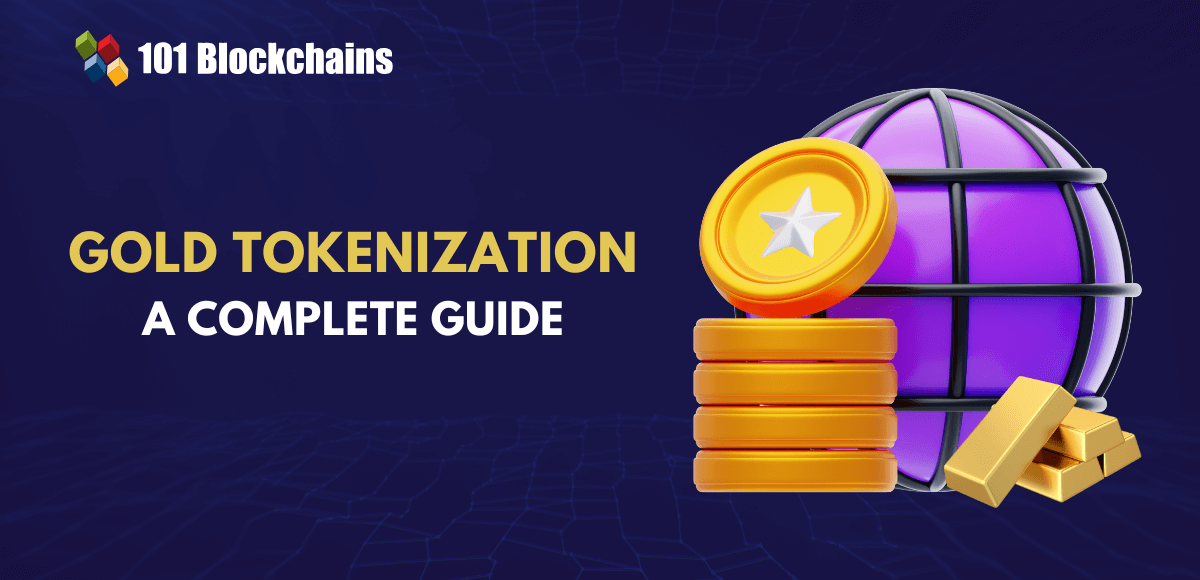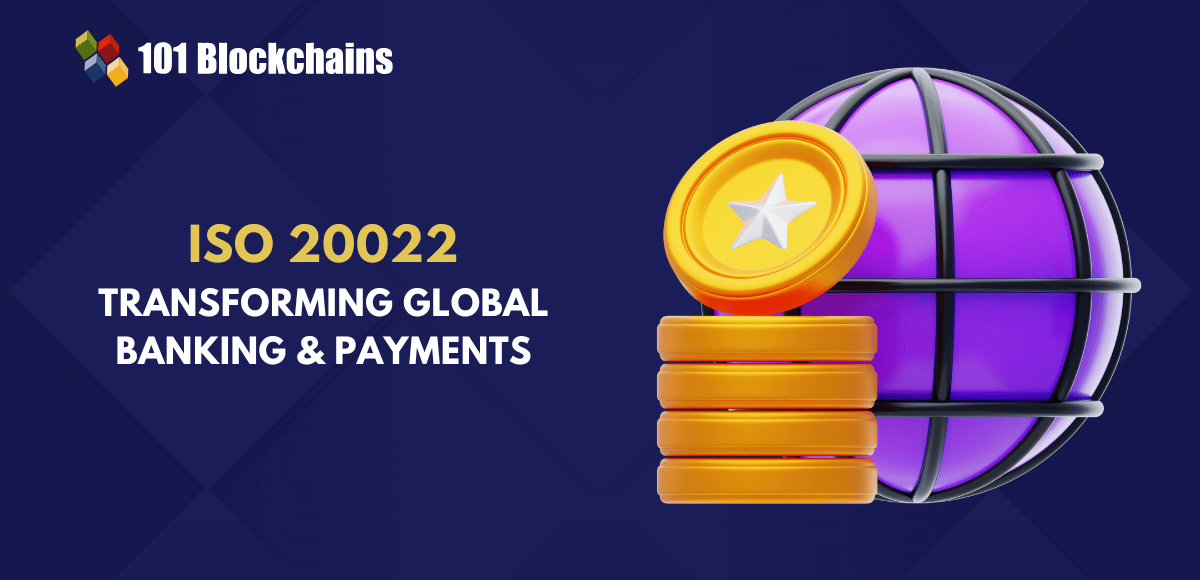Learn how blockchain truly works, master key definitions, and uncover what makes smart contracts so "smart." Dive into the fundamentals, gain valuable insights, and start your blockchain journey today!

- Guides
James Howell
- on June 12, 2023
What is ZCash and How does it work?
The existing digital landscape offers the assurance of innovative technological advancements with many prominent examples. One of the significant factors underlying the growth of existing technologies revolves around tracking and documentation of personal information. Cryptocurrencies have offered new ways for safeguarding anonymity of users, regardless of the efforts by regulatory authorities to impose restrictions on accessibility.
At this point in time, questions like ‘What is ZCash’ are more important than ever for a specific reason. While cryptocurrencies such as Bitcoin have introduced anonymity, they cannot remove the element of traceability in transactions on public blockchain networks. The working of ZCash depends on shielded addresses, which help in ensuring better privacy of transactions. Let us learn more about the fundamentals of ZCash in the following post.
Definition of ZCash
The first thing you need to understand ZCash would obviously point to its definition. One of the common highlights in the definition of ZCash explained for every beginner is the emphasis on privacy. ZCash is a privacy-centric, blockchain-based payment network that leverages zero-knowledge proofs or ZKPs for shielding transactions. It evolved as a hard fork of Bitcoin blockchain, with the initial foundations in Zerocash protocol.
One of the significant highlights of how does ZCash work would emphasize the use of zero-knowledge proofs or ZKPs. Zero-knowledge proof technology can help two parties in verifying information without sharing other related data. Interestingly, ZCash added another crucial improvement over ZKPs with ZK-SNARKs or Zero-Knowledge Succinct Non-Interactive Argument of Knowledge toolkit. ZK-SNARKs have been successful in shielding transactions on ZCash by ensuring complete encryption on the blockchain alongside verification of transaction validity through network consensus.
Curious to know about the basic concepts and background of Zero Knowledge Proofs. Enroll now in Zero Knowledge Proofs (ZKP) Masterclass
Origins of ZCash
Another important aspect of the introduction to ZCash would refer to how its origins related to Bitcoin. The answers to “Is ZCash better than Bitcoin?” can be clearly comprehensible through a review of how ZCash has been created over the Bitcoin blockchain. How? Bitcoin offers a peer-to-peer network that removes intermediaries from the process of transferring Bitcoins among users. On the other hand, transactions on Bitcoin imply public visibility of account balances and transaction history. Even if decentralization offers transparency in Bitcoin network, there is no way to safeguard financial privacy.
Before ZCash, most of the cryptocurrencies featured pseudonymous addresses, albeit with the facility for tracking the ownership of open-source, public blockchains. The founder of the ZCash Company, Zooko Wilcox, recognized the need for introducing a privacy cryptocurrency that could prevent exposure of transaction history.
The ZCash price is only one of the factors which have invited attention to the privacy-focused cryptocurrency. Wilcox created his startup in 2015 and explored the ideas for creating Zerocoin, and many expert researchers and cryptographers contributed to the project. Ultimately, ZCash was launched in 2016, and since then, the project has evolved with many promising solutions for improving user experience.
The ZCash Wallet is one of the examples of new developments introduced by ZCash protocol. As of now, the two primary entities managing the ZCash ecosystem include ZCash Foundation and the Electric Coin Company. The Electric Coin Company is a community of developers and academics inclined towards supporting ZCash developments and improving awareness.
The Electric Coin Company does not have any control over the working of ZCash cryptocurrency, the miners or token distribution. On the other hand, the ZCash Foundation works on serving funds for research and development, protocol governance, grant distribution to developers and community management.
Want to become a Cryptocurrency expert? Enroll Now in Cryptocurrency Fundamentals Course
Working of ZCash
The need to learn about ZCash revolves around its capability to offer a private cryptocurrency solution. As a fork of the Bitcoin blockchain, ZCash has almost every powerful feature of Bitcoin. However, the answers to ‘what is ZCash’ reveal that it is different from Bitcoin in a big way. ZCash offers the benefit of ZKPs in the form of ZK-SNARKs for offering privacy.
How do ZK-SNARKs separate ZCash from other cryptocurrencies? ZK-SNARKs help in verifying transactions without revealing transaction information, such as details of the interactions with verifiers. Most important of all, the features of ZK-SNARKs help in faster processing of transactions without complaints of instability. On top of it, encryption between two parties removes the possibilities of communication.
Another important highlight in the working of ZCash explained for beginners would point at shielded addresses. Apart from the public address, ZCash also offers a shielded address for users, thereby enabling the flexibility of selecting the level of anonymity. ZK-SNARKs are the foundation of the shielded addresses, thereby ensuring a formidable value proposition for businesses.
Notable Features of ZCash
The primary features of ZCash are associated with addresses and transactions. You can learn more about the ‘shielding’ advantage by reflecting on the two notable features of ZCash. First of all, you can find answers to “Is ZCash better than Bitcoin?” in the outline of addresses available with ZCash. In comparison to Bitcoin, ZCash offers two different addresses, such as private or z-address and transparent or t-address. The promising highlight of the two ZCash addresses is their interoperability between them.
The interactions between the two types of wallets play a crucial role in determining another important feature of ZCash. Discussions around questions like “What is ZCash used for?” would point to the use of two distinct address variants for coming up with four distinct transaction types. The four different types of transactions on ZCash include private, deshielding, shielding and public transactions.
- Private transactions between z-addresses are visible on a public blockchain, albeit with encryption of transaction details.
- Public transactions between two public addresses or t-addresses work just like a general Bitcoin transaction.
- Deshielding transactions involve sending transactions from a private address to a public address.
- Shielding transactions involve sending cryptocurrency from a public address to a private address.
Apart from the distinct types of addresses and transactions, ZCash also brings promising value improvements with other features.
-
Low Transaction Fees
One of the foremost features would point to the ZCash price assurance with low-fee transactions. With the default transaction fee of 0.0001 ZEC, users can find an effective cryptocurrency solution.
-
Encrypted Memos
Encrypted memos are another prominent highlight in the features of ZCash. Shielded transactions on ZCash have a memo field that allows senders to add relevant information in a completely encrypted manner. Encrypted memos can help in passing messages as well as instructions alongside addressing compliance requirements.
-
Multi-sig Transaction Support
Another important highlight of ZCash alongside the ZCash Wallet would refer to the facility for multi-signature transactions. The only downside of the multi-sig transactions with ZCash is the limitation on ensuring privacy. Interestingly, the team behind ZCash is working on extending the flexibility of conducting multi-sig transactions with shielded addresses.
-
Support for Viewing Keys
The overview of features in ZCash also sheds light on the facility for viewing keys. Shielded address owners could choose to reveal transaction details for the purpose of regulatory compliance and auditing. Owners of the shielded address have the option to disclose details about incoming transactions and memo fields. ZCash has plans to introduce support for full viewing keys, which can reveal all the transaction values associated with the address.
-
Easy Auditing and Compliance
The flexibility of using ZCash in multiple applications could also depend on the option for payment disclosure. You can find answers to “What is ZCash used for?” in every use case of cryptocurrencies. However, ZCash allows senders or receivers to reveal transaction details to third-party entities for auditing or compliance.
-
Efficient Optimization of Transaction Capacity
ZCash also features an efficient design that enables support for transaction expiration. Removal of redundant or non-mined transactions can help in improving the performance of the protocol. Transactions expire if they are not mined within 50 minutes, and the transaction fees return back to the user.
The list of features of ZCash also draws the limelight towards its similarities to Bitcoin. While the responses to “Is ZCash better than Bitcoin?” refer to privacy, it is important to note that ZCash is a Bitcoin fork. Therefore, ZCash has many similarities with Bitcoin. For example, the total supply of ZCash is fixed at 21 million units like Bitcoin.
Want to become a bitcoin expert? Enroll Now: Getting Started with Bitcoin Technology
ZCash Tokenomics
ZCash follows a Proof of Work mining algorithm like Bitcoin for generating ZEC with every new successful block verification. Block rewards with ZCash follow the same halving mechanism as Bitcoin for a period of four years, thereby ensuring deflation. An introduction to ZCash would be incomplete without referring to the ZCash price mechanics with the Proof of Work mining. In the first four years of ZCash, miners received 80% of the block reward. The Electric Coin Company and the ZCash Foundation, as well as stakeholders and key contributors, received the remaining 20%.
Upgrades to ZCash over the Years
The detailed review of an introduction of ZCash must also emphasize on network upgrades it has introduced over the years. The prominent advancements of ZCash include the Halo and Halo 2 ZKPs, ZCash wallet, Heartwood, Canopy and NU5. Each network upgrade delivered significant improvements to ZCash alongside encouraging institutional support. Here is an overview of the different network upgrades which have shaped the ZCash cryptocurrency.
-
Halo and Halo 2
ZCash came up with Halo in 2019 as an innovative take on ZK-SNARKs for resolving two issues for the privacy-focused cryptocurrency, trusted setups and scalability. The initial setup for ZCash featured a trusted setup, which generates a secret number, which is a derivative of the number used in the ZCash protocol. It is important to note that the number has to be created in multiple parts with contributions by multiple agents.
Therefore, a trusted setup is a necessity for every hard fork. However, failure in removal of the cryptographic waste by all the involved actors without revealing the information. If anyone does not destroy the waste or finds out the secret number, it can lead to problems for security of ZCash explained, such as arbitrary creation of ZCash tokens. Halo removed these concerns without the need for a trusted setup or cryptographic toxic waste associated with it.
Halo provided significant improvement over the existing ZKP functionalities by enabling compression of any amount of data. ZCash introduced Halo 2 in 2020 by introducing a new ZK-SNARK model in comparison to ‘Sonic’ for verifying transactions. With Halo 2, ZCash has become one step closer to eliminating the need for a trusted setup.
-
ZCash Wallet
The most important feature of the ZCash ecosystem would refer to the ZCash Wallet, which was introduced in 2019. The wallet started off as an experiment for ECC Reference wallet as a light-client reference wallet. It was intended to allow the functionality of shielded transactions on mobile devices. ZCash launched the fully functional wallet in June 2020 with a software development kit for testing and demonstration.
-
Heartwood Network Upgrade
The Electric Coin Company came up with the Heartwood network upgrade in July 2020, which introduced support for Flyclient and Shielded Coinbase. Shielded Coinbase allowed the flexibility for shielding ZEC completely from the creation process. Another notable highlight for understanding ‘what is ZCash’ and the Heartwood upgrade is the facility for miners to direct their mining rewards to a private address.
At the same time, Flyclient enables improvement in efficiency of block verification. On top of it, Flyclient can also improve the market potential and utility for ZCash. It also enables support for light-client use cases alongside initiatives for developing cross-chain interoperability.
Other recent upgrades in the ZCash protocol include Canopy and NU5. Canopy focuses on creating a new development fund for the course of the next four years. NU5 is the latest network upgrade in ZCash, which has arrived in the Halo Arc product suite release. NU5 is a perfect example of the continuous evolution of ZK-SNARK technology in ZCash protocol.
Conclusion
The introduction of ZCash showcases promising highlights about the rise of a privacy-focused cryptocurrency. One of the primary traits of cryptocurrency transactions is the advantage of anonymity. However, the basics of ZCash and answers to “What is ZCash used for?” prove how cryptocurrencies can evolve with better value improvements.
The important privacy mechanism of ZCash serves as an effective choice for addressing the need for innovation in cryptocurrency landscape. It is important to look for effective ways that can help in ensuring the implementation of ZCash in business use cases. Learn more about ZCash protocol in detail right now.
*Disclaimer: The article should not be taken as, and is not intended to provide any investment advice. Claims made in this article do not constitute investment advice and should not be taken as such. 101 Blockchains shall not be responsible for any loss sustained by any person who relies on this article. Do your own research!






